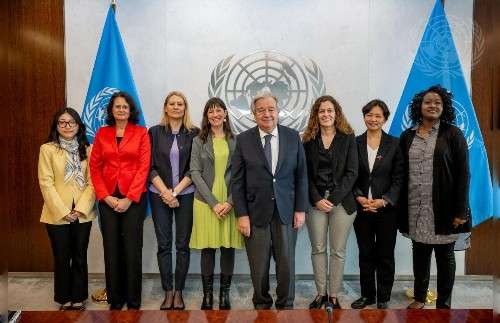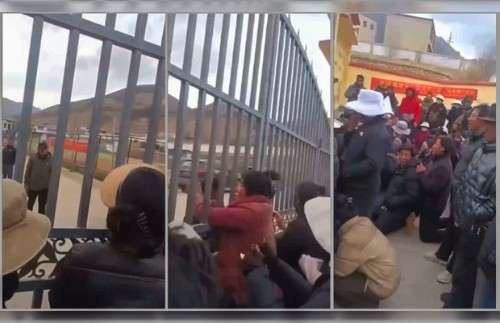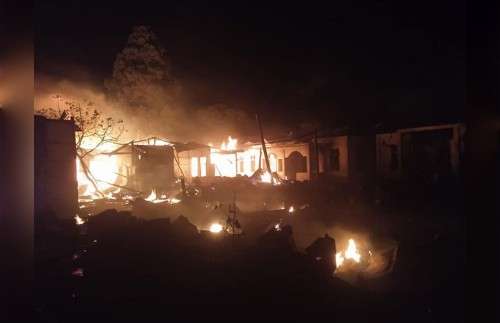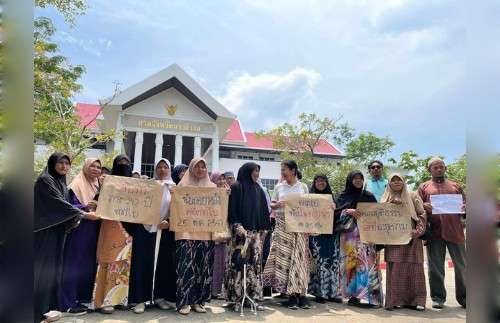Even the capital Pyongyang is suffering major price shocks as rice prices rise nearly 30 percent.

North Koreans are growing anxious as food prices have begun to fluctuate wildly amid uncertainty over the reopening of the border with China and the resumption of trade with Pyongyang’s largest trading partner.
The northeast Asian neighbors shut down their 880-mile border in January 2020 at the start of the coronavirus pandemic, cutting off North Korea’s lifeline to the world, including access to food imports to cover shortages, leading to rising prices as grain stocks begin to run out.
“Yesterday morning at the local market here in Pyongsong, the price of domestic rice was 5,400 won [U.S. $1.04] per kilogram [2.2 pounds], but it fell to 4,900 won [U.S. $0.94] at closing time,” a resident of the South Pyongan provincial capital, a satellite city of Pyongyang, told RFA’s Korean Service June 9.
“I don’t understand why food prices and exchange rates are constantly changing. Yesterday the exchange rate for the U.S. dollar was 6,100 won, but it went down to 5,300 in the evening,” said the source, who requested anonymity for security reasons.
Buyers are now trying to speculate on the price fluctuations, waiting until late in the day before flocking to the market to try to get a good deal on food and other living essentials, according to the source.
“But sometimes the residents are perplexed whenever food prices are higher in the evening than they were in the morning at opening,” said the source.
Another source, a resident of Ryongchon county in North Pyongan province in the northwest, told RFA that the trend for June has been that food prices are rising, while the value of foreign currencies has been falling against the won.
Weakening foreign currencies indicate that North Korean trading companies are not trying to acquire foreign cash to do business abroad, and are less optimistic that cross-border trade will resume soon.
“Nowadays the price of Chinese rice is 4,600 won [$0.88] and domestic rice is 5,000 won [$0.96] per kilogram,” said the second source, who requested anonymity to speak freely.
These prices are considerably higher than the average domestic rice price of 4,000 won ($0.77) in April, and 4,700 won ($0.90) in May, according to the second source.
“The period of the year from May to June is called the barley hump, when grain stocks produced last year are nearly exhausted so the increase in food prices is inevitable,” the second source said.
“This year, due to strict quarantine rules because of the coronavirus, and with the Chinese border still being closed–meaning there are no food imports–it’s all going to lead to a further increase in food prices,” said the second source.
Foreign currencies rose in value earlier in the year when there were rumblings that the border with China would reopen, but with the year nearly half over, the dollar and yuan are trending in the opposite direction, according to the second source.
“The exchange rate was 7,100 won per dollar in May, but it fell into the 5,000s in June and will hit a record low in the post coronavirus period as long as there is no hope of trade resumption,” the second source said.
“The reason behind the fall in the exchange rate is that fewer trading companies are buying foreign currency to import and export as the number of coronavirus patients is still increasing, and there is therefore less hope that border trade will resume in the near future,” said the second source, referring to North Korea’s tally of “suspected” coronavirus cases.
Though Pyongyang continues to tell the international community that the country is completely virus-free, RFA reported last year that authorities admitted in a series of lectures that COVID-19 was spreading in three geographically distant areas of the country, including in the capital Pyongyang.
North Korean health authorities have officially kept track of cases they suspect might be coronavirus, but in the event of the death of a patient suspected positive, a different cause is usually listed, and the body is quickly cremated, according to previous RFA reports.
Pyongyang price controls fail
Food prices have also sharply increased in Pyongyang despite authorities’ efforts to shield the country’s elite citizens from price shocks. Even during the double squeeze of international nuclear sanctions and most of the coronavirus emergency, the price of food in the capital had remained stable.
“The price of a kilogram of rice, which used to be around 5,000 [$0.96] won until last month, is now 7,000 won [$1.35],” a resident of Pyongyang told RFA on June 4.
“I’ve never seen food prices rise so steeply like this, not even during the outbreak of the coronavirus, even after the border was completely sealed off and food routes from the outside were blocked,” said the third source, who declined to be named.
Another Pyongyang resident confirmed the increase to 7,000 won, saying, “I have lived in Pyongyang for more than 20 years, but I’ve never seen such high food prices.”
Reported by Hyemin Son and Jeong Yon Park for RFA’s Korean Service. Translated by Leejin Jun and Jinha Shin. Written in English by Eugene Whong.
Copyright © 1998-2020, RFA. Used with the permission of Radio Free Asia, 2025 M St. NW, Suite 300, Washington DC 20036. https://www.rfa.org














